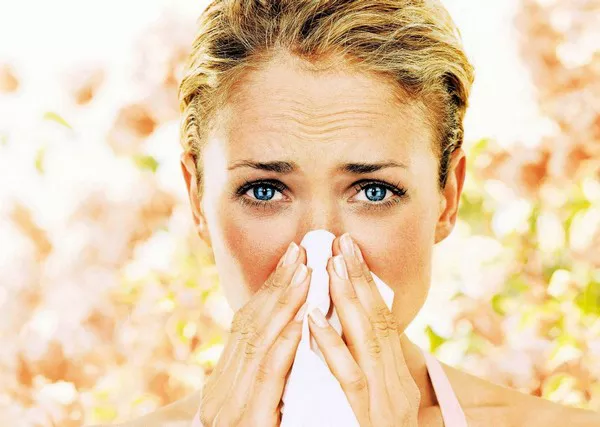Allergies affect millions of people worldwide, causing discomfort, limitations, and a reduced quality of life. While there is no known cure for allergies, various treatment options can help manage symptoms and minimize the impact on daily life. In this article, we explore the nature of allergies, their causes, and common triggers. Additionally, we delve into the available treatment options for Allergies, ranging from avoidance strategies and medications to immunotherapy and emerging therapies. By understanding the available treatments and working closely with healthcare professionals, individuals can proactively manage their allergies and enjoy a better quality of life.
Understanding Allergies
a. What Are Allergies: Allergies occur when the immune system reacts abnormally to substances that are typically harmless, such as pollen, pet dander, or certain foods. This immune response triggers a range of symptoms, including sneezing, itching, nasal congestion, rashes, and more.
b. Common Allergens: Allergies can be triggered by a wide range of substances, including pollen, dust mites, mold spores, pet dander, certain foods (such as nuts, shellfish, or dairy), insect stings, and medications.
Avoidance and Environmental Control
a. Identifying Triggers: Identifying specific allergens is the first step in managing allergies. Working with an allergist can help pinpoint triggers through skin tests, blood tests, or elimination diets.
b. Allergen Avoidance: Once allergens are identified, efforts should be made to minimize exposure. Strategies may include creating a dust-free environment, using air purifiers, washing bedding regularly, implementing pet dander control measures, and avoiding specific foods or ingredients.
Medications for Symptom Relief
a. Antihistamines: Antihistamines are commonly used to relieve allergy symptoms by blocking the effects of histamine, a chemical released during an allergic reaction. They can help alleviate sneezing, itching, and runny nose.
b. Decongestants: Decongestants help reduce nasal congestion by shrinking swollen blood vessels in the nasal passages. They are available in oral or nasal spray form but should be used cautiously due to potential side effects and rebound congestion.
c. Nasal Sprays: Intranasal corticosteroid sprays can effectively reduce inflammation in the nasal passages, providing relief from congestion, sneezing, and itching.
d. Eye Drops: Eye drops containing antihistamines or mast cell stabilizers can help relieve itchy, red, and watery eyes associated with allergies.
e. Topical Creams: Topical corticosteroid creams or ointments can alleviate itching and inflammation caused by allergic skin reactions or eczema.
Immunotherapy: Allergy Shots and Sublingual Immunotherapy
a. Allergy Shots: Allergy shots, or subcutaneous immunotherapy (SCIT), involve regular injections of small amounts of allergens to gradually desensitize the immune system. This long-term treatment option can reduce the severity of allergic reactions over time.
b. Sublingual Immunotherapy (SLIT): SLIT involves placing drops or tablets containing allergen extracts under the tongue. Over time, SLIT can help build tolerance to specific allergens and reduce allergy symptoms.
c. Efficacy and Considerations: Immunotherapy is highly effective for certain allergens, such as pollen, dust mites, and certain insect venoms. However, it requires a significant time commitment and close monitoring by an allergist due to the potential for allergic reactions.
Emerging Therapies and Research
a. Biologic Therapies: Biologic therapies, such as monoclonal antibodies, target specific molecules involved in the allergic immune response. These advanced treatments are being developed for severe allergic asthma, chronic hives, and other allergic conditions.
b. Allergen-Specific Immunotherapy: Research is underway to develop novel forms of immunotherapy, including modified allergen extracts, nanoparticles, and DNA vaccines. These innovative approaches aim to improve the effectiveness and convenience of immunotherapy.
Lifestyle Adjustments and Self-Care
a. Allergen Precautions: Being aware of potential allergen exposures, such as checking ingredient labels, wearing protective gear, or carrying emergency medications, can help minimize the risk of allergic reactions.
b. Allergy Action Plan: Developing an individualized allergy action plan in collaboration with an allergist can provide guidance on managing symptoms, recognizing signs of severe reactions, and knowing when to seek medical help.
c. Allergy Support and Education: Support groups and educational resources can offer emotional support, practical advice, and the latest information on managing allergies effectively.
d. Healthy Lifestyle Habits: Maintaining overall good health, including regular exercise, a balanced diet, and adequate rest, can support the immune system and potentially reduce the severity of allergy symptoms.
Collaboration with Healthcare Professionals
a. Allergist Consultation: Consulting with an allergist or immunologist is essential for accurate diagnosis, personalized treatment plans, and ongoing management of allergies. Regular follow-up visits are crucial to monitor progress and adjust treatment as needed.
b. Patient Education: Healthcare professionals play a vital role in educating patients about allergies, triggers, treatment options, and self-care strategies. Being well-informed empowers individuals to actively participate in their allergy management.
Conclusion
While there is no cure for allergies, numerous treatment options exist to help individuals effectively manage their symptoms and reduce the impact on their daily lives. From avoidance strategies and medications for symptom relief to immunotherapy and emerging therapies, the evolving field of allergy treatment offers hope and improved quality of life. By working closely with healthcare professionals, implementing avoidance measures, exploring appropriate medications, and considering immunotherapy options, individuals with allergies can take proactive steps towards achieving better symptom control and enjoying a fuller, more vibrant life.


